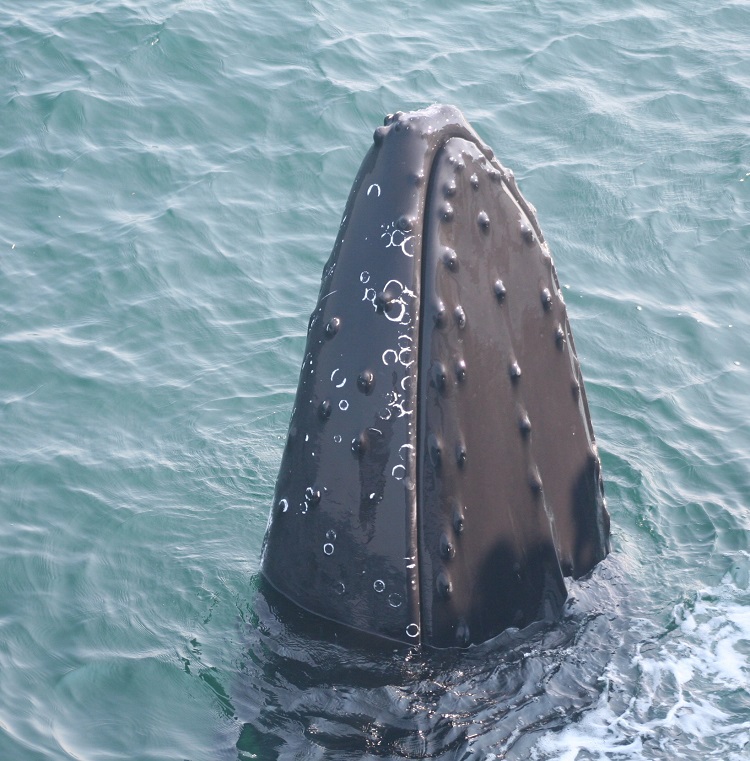Humpback whales sing the same song

Male humpback whales in a population sing the same song at any one time, according to new research from the University of St Andrews and the University of Queensland.
A study of song patterns from east Australia studies over 13 years found that the song gradually changes each year but that every few years their song is completely replaced in cultural ‘revolution’ events.
When revolution events occurred, the new song was always simpler than the one it replaced.
The study, published today (Wednesday 21 November 2018) in the Royal Society journal Proceedings B, suggests that gradual song changes may be embellishments by individual singers, and that revolutions are simpler because singers may have limited ability to learn new material.
The research was led by Dr Jenny Allen at the University of Queensland and Dr Ellen Garland at St Andrews.
Dr Allen said: “Much evidence for non-human culture comes from vocally learned displays, such as the vocal dialects and song displays of birds and cetaceans. While many oscine birds use song complexity to assess male fitness, the role of complexity in humpback whale (Megaptera novaeangliae) song is uncertain due to population-wide conformity to one song pattern.
“We examined two measures of song structure, complexity and entropy, in the eastern Australian population over 13 consecutive years. These measures aimed to identify the role of complexity and information content in the vocal learning processes of humpback whales.
“Complexity was quantified at two hierarchical levels: the entire sequence of individual sound units and the stereotyped arrangements of units which comprise a theme. Complexity increased as songs evolved over time but decreased when revolutions occurred.
“No correlation between complexity and entropy estimates suggests that changes to complexity may represent embellishment to the song which could allow males to stand out amidst population-wide conformity. The consistent reduction in complexity during song revolutions suggests a potential limit to the social learning capacity of novel material in humpback whales.”
Category Research